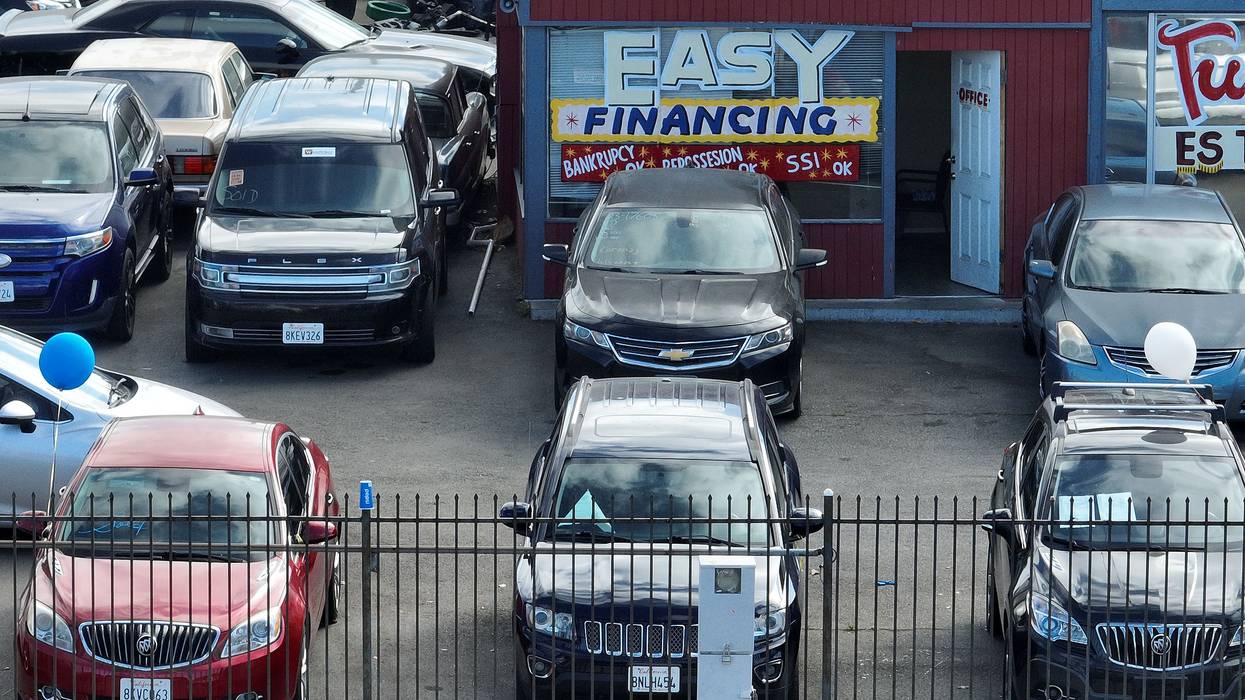Responding in a statement late Friday, Anwen Hughes, senior director of legal strategy for the refugee programs at Human Rights First, said that "this outrageous decision to pull the rug out from under the thousands of people who came to the US lawfully to reunite with their families is shocking."
"Yet again, this administration is taking extraordinary measures to delegalize as many people as possible, even when they have done everything the US government has asked of them," she continued. "The government did this in March when they announced their intent to take away lawful status from hundreds of thousands of humanitarian parole beneficiaries; they are doing it now with more than 10,000 people who came lawfully to reunite with their families; they are taking their attacks on birthright citizenship to the Supreme Court; and they are escalating their threats to delegalize untold numbers of others without notice."
"This outrageous decision to pull the rug out from under the thousands of people who came to the US lawfully to reunite with their families is shocking."
Guerline Jozef, executive director of the grassroots group Haitian Bridge Alliance, said in a Saturday statement: "Let's be clear: This is not about security. This is about an administration using racist, nativist scare tactics to dismantle lawful family reunification and terrorize Black and Brown immigrants."
"Family reunification parole was created to keep families together and provide a safe, legal pathway while people waited for visas that the US government itself told them would take years," Jozef noted. "Now those same families—many of them Haitian—are being punished for trusting the system. It is state violence, it is anti-Black, and it is an unacceptable betrayal of basic human dignity."
Lawyers behind a class action lawsuit against DHS Secretary Kristi Noem and other key administration leaders over the March policy—Svitlana Doe v. Noem—plan to also challenge the new move.
"Those who entered under the family reunification program should contact their immigration attorney immediately to better understand their options, as those options may change on December 15," warned Esther Sung, legal director at Justice Action Center, which represented plaintiffs in the earlier case.
"The legal team in Svitlana Doe v. Noem will also alert the court as soon as possible to ensure that our clients and class members are not unlawfully harmed by this move," Sung said. "Today's news is devastating for families across the country, but we will continue to fight alongside all immigrants and their families who are unjustly targeted by this callous administration."
Meanwhile, as the Times reported Friday, in March, TSA began sending the names of all air travelers to another DHS agency, Immigration and Customs Enforcement (ICE), which "can then match the list against its own database of people subject to deportation and send agents to the airport to detain those people."
"It's unclear how many arrests have been made as a result of the collaboration," the newspaper detailed. "But documents obtained by the New York Times show that it led to the arrest of Any Lucía López Belloza, the college student picked up at Boston Logan Airport on November 20 and deported to Honduras two days later. A former ICE official said 75% of instances in that official's region where names were flagged by the program yielded arrests."
In López Belloza's case, she tried to board her plane, but her ticket didn't work. The 19-year-old—who said she didn't know about a previous deportation order—was sent to customer service, where she was met by agents with Customs and Border Protection (CBP), another DHS agency playing a key role in Trump's sweeping and violent crackdown on immigrants.
Like the new attack on family reunification, the Times reporting sparked a wave of condemnation. David Kaye, a law professor at the University of California, Irvine, said on social media, "Make sure people you know who need this information have this information."
Jonathan Cohn, political director for the group Progressive Mass, declared that "the Trump administration wants to make flying unsafe: unsafe because of surveillance, unsafe because of understaffed air traffic controllers, and unsafe because of gutted consumer protections."
Eva Galperin, the Electronic Frontier Foundation's director of cybersecurity, pointed to the constitutional protection from unreasonable searches and seizures, saying, "I'm not a lawyer, but I feel like the Fourth Amendment has something to say about this."
Amid protests over Trump's broader deportation push and the president's plunging approval rating on immigration, unnamed DHS sources confirmed Friday that CBP teams "under Commander Gregory Bovino will change tactics," according to NewsNation. "Instead of sweeping raids like those that have taken place at locations including Home Depot, agents will now be narrowing their focus to specific targets, such as illegal immigrants convicted of heinous crimes."
NewNation's reporting came just days after DHS published a database on ICE arrestees that led Aaron Reichlin-Melnick, a senior fellow at the American Immigration Council, to conclude that the department "is implicitly admitting that less than 5% of the people it arrests are people they believe are 'the worst of the worst.'"
This article has been updated with comment from Haitian Bridge Alliance.




